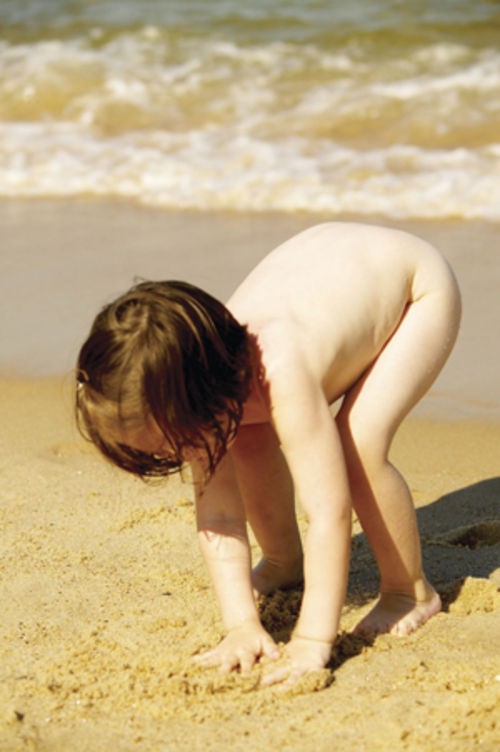
New UC Irvine research has found that high fecal counts frequently detected at “baby beaches” or “mom beaches” may not be diaper-related but are instead caused by small drainpipes.
No, “small drainpipes” is not my euphemism for rugrats with runny noses.
]
Orange County Beaches Still Relatively Clean Despite NRDC's Tougher Testing Standards
Storm-water runoff in winter months has long been a source of pollution along the Orange County coast, and the bay-side beaches where young children can play without fear of being pulled out to sea have consistently tested dirty.
According to the findings published Tuesday in the journal Environmental Science & Technology, UCI researchers found that during summer months, small drainpipes emptying into enclosed ocean bays have a disproportionate impact on calmer waters.
“Small drains play a huge role when it's dry because they capture that urban slobber and deliver it to these estuarine water bodies,” says lead author Meg Rippy, a UCI post-doctoral urban ecologist, in a university statement.
“Urban slobber is any runoff that comes from irrigation, from washing our cars, bird waste, dog waste, anything that then runs onto our roads that haven't seen rain for a long time,” she explains. “And whatever is on our roads is delivered in highly concentrated form by our storm system to our water bodies.”
The UCI team worked with Newport Beach engineers to trace the pollutants documented in the study. Dyed pulses of waste coming out of pipes at certain spots in Upper and Lower Newport Bays and along Newport Peninsula were tracked as bright green plumes that floated away from or hugged the shore. Rippy and Assistant City Engineer Bob Stein then modeled and analyzed when such plumes appeared and how they behaved.
Fecal indicator bacteria were detected, especially at low tide, according to the researchers. Worse, it collects on the water's surface and even when it moves out to sea, winds can bring it back close to shore.
Costly pumps and mixing machinery that municipalities have installed in polluted shallow estuaries are therefore ineffective because the material typically rests on the surface, not in the water column, according to co-author Stanley Grant, a UCI civil and environmental engineer.
Clean-up efforts by Newport Beach officials were cited with improving the problem, including placing traps at the mouths of storm drains, building new boat bilge pump-out stations and adjusting street sweeping. Replacing or relocating pipes farther offshore and installing bioswales made of drought-tolerant plants in medians and other areas above the estuaries to naturally capture and filter “urban slobber” before it reaches drainpipes are other solutions suggested by the research.
It's not just a Newport Beach or Orange County problem, of course. There are hundreds of small bays with baby beaches along the western U.S. coastline and worldwide.
Email: mc****@oc******.com. Twitter: @MatthewTCoker. Follow OC Weekly on Twitter @ocweekly or on Facebook!

OC Weekly Editor-in-Chief Matt Coker has been engaging, enraging and entertaining readers of newspapers, magazines and websites for decades. He spent the first 13 years of his career in journalism at daily newspapers before “graduating” to OC Weekly in 1995 as the alternative newsweekly’s first calendar editor.

